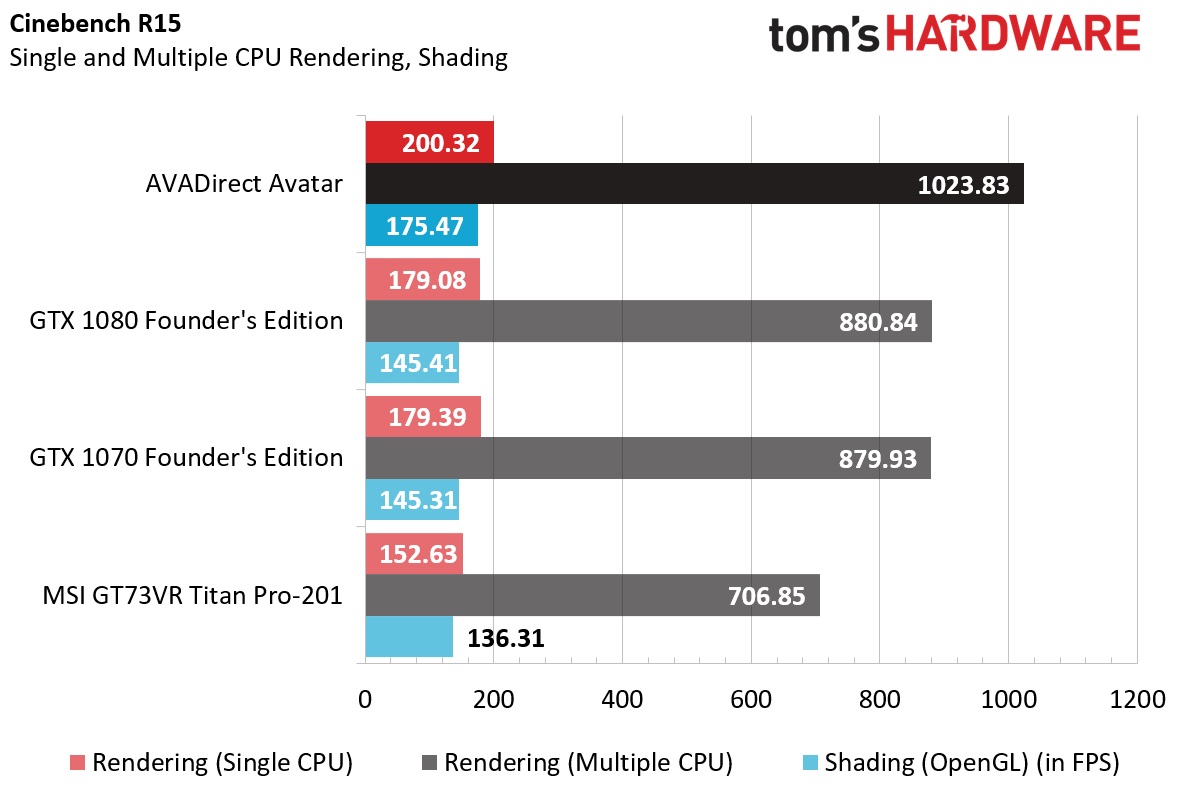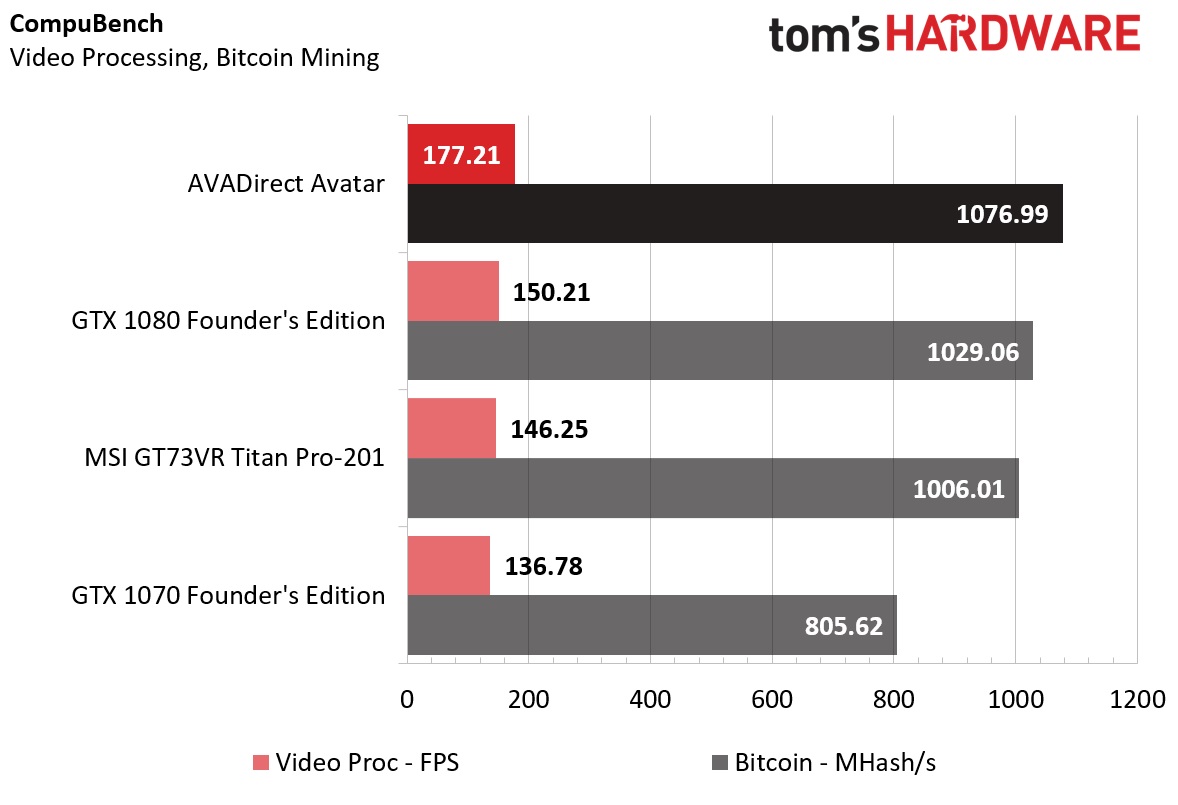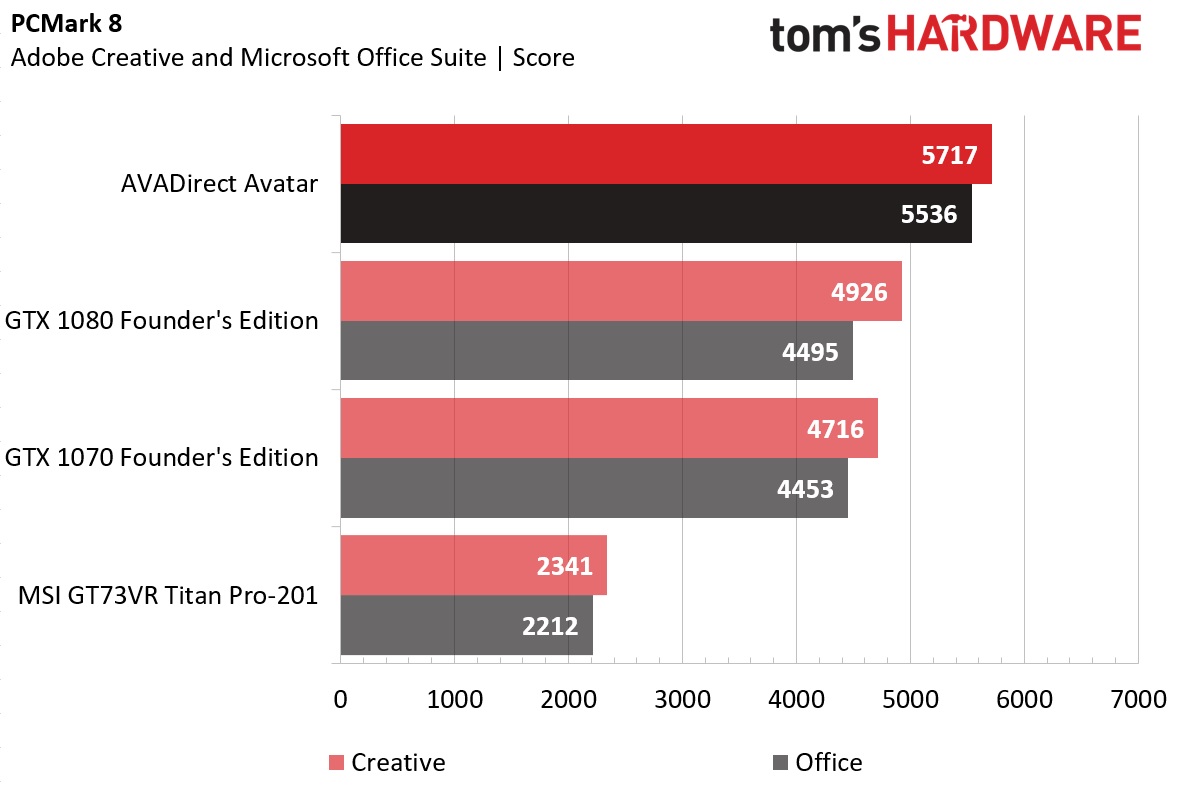AVADirect Avatar Gaming Desktop Review
Why you can trust Tom's Hardware
Synthetic And Productivity Benchmarks
To properly set the tone for our gaming desktop system reviews, we built a custom Z170 platform featuring an Intel Core i7-6700K on an Asus Maximus VIII Hero ATX motherboard, with 16GB of DDR4-2133 memory, and Founder's Edition Nvidia GeForce GTX 1080 and 1070 GPUs. We set the hardware to default settings with stock CPU, memory, and GPU frequencies in order to provide a base comparison factor for our review units, which often arrive overclocked and mostly feature add-in graphics cards with factory-overclocked frequencies. The full specifications of our test bench are listed below.
Test System Configuration
In the case of the Avatar review unit, our test system will provide a compelling case for (or against) AVADirect's overclocking service, which increases the CPU clock speed to 4.7GHz on all four cores. With an EVGA GeForce GTX 1080 Founder's Edition under the hood, the Avatar's only discernible advantages to our test rig (on paper) include its faster SATA SSD storage (we used a spare Micron P400M sample we had laying around for the system image), slightly higher memory frequency, and a significantly increased CPU clock rate (700MHz higher than the 4.0GHz base clock). It will be easy to spot CPU-intensive tests and applications when the Avatar is compared with our test system. We also syphoned data from our review of the MSI GT73VR Titan Pro gaming laptop to see where a mobile GTX 1080 platform stacks up against Founder's Edition desktop GPUs.
3DMark
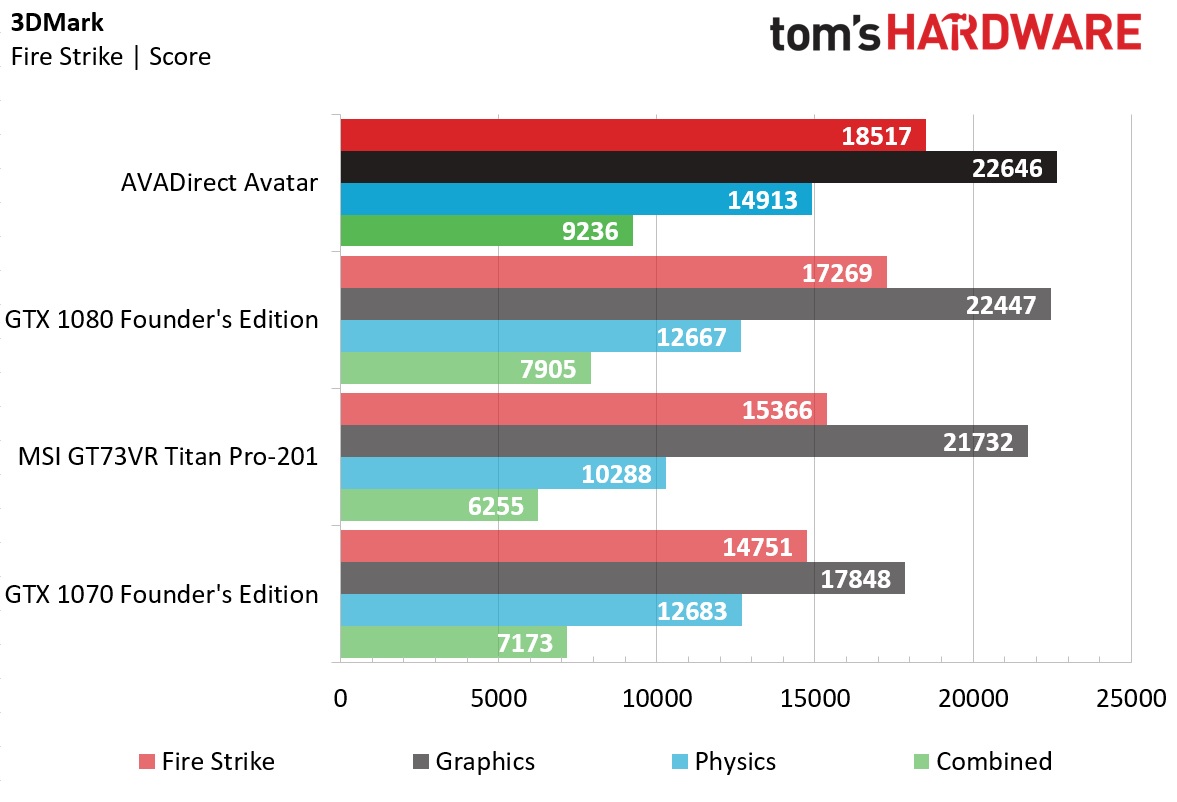
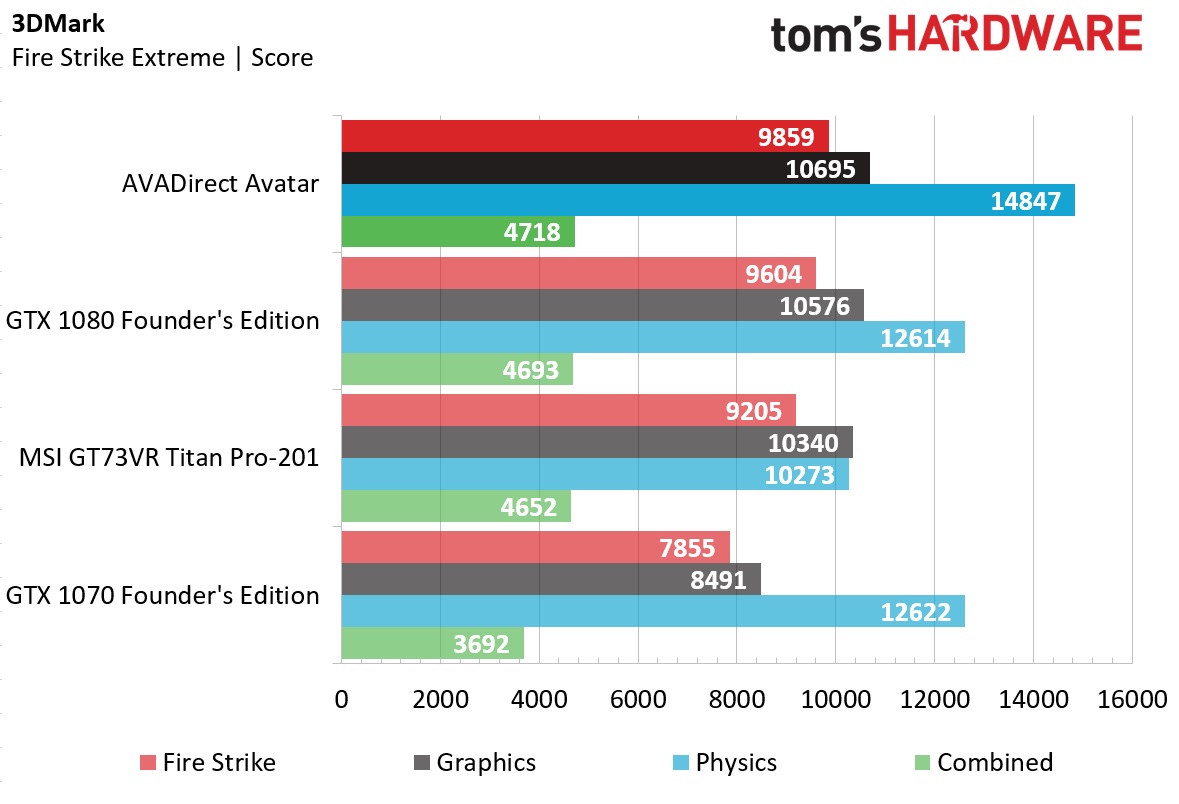
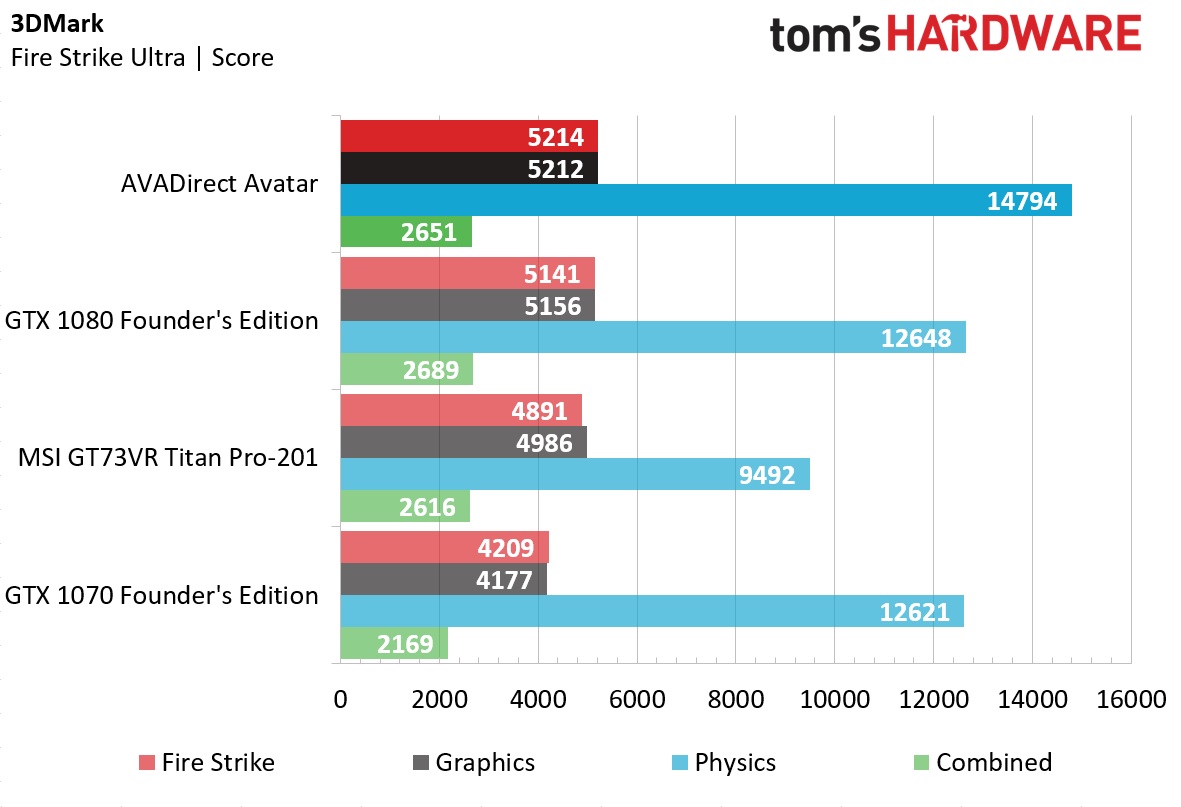
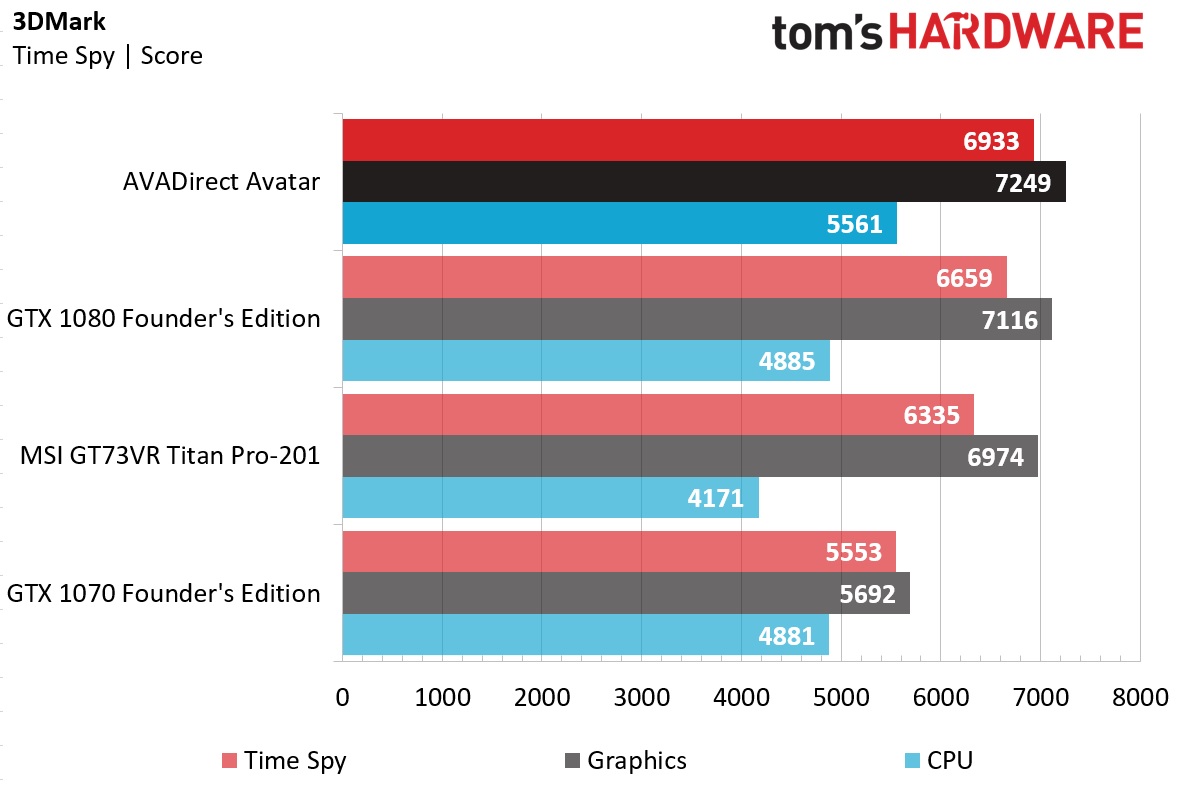
AVADirect's Avatar starts off in the lead, thanks mainly to its beefy overclock. It dominates the Physics portion of the Fire Strike and Time Spy tests, boosting the Combined and Overall score, but it lands in the same ballpark as the reference desktop (and even the Titan Pro, though it leads here by a larger margin) in the Graphics tests. This is no surprise: our test bed features the same Founder's Edition GTX 1080 as the one in the Avatar, and we'll probably only see AVADirect's overclocked system outpace the reference system in CPU-intensive benchmarks.
Cinebench R15
Cinebench offers no surprises in this group of gaming systems, with the Avatar landing on top again due to its superior CPU clock rate. Its single-core rendering score beats out the closest comparison by almost 21 points, and this gap is only widened with the multi-core rendering test, where the Avatar outpaces our test system by over 40 points. The OpenGL shading results follow a similar pattern, with the Avatar besting the reference system by over 30 FPS (and the Titan Pro by nearly 40 FPS). Mind you, Cinebench only tests the CPU, so it shouldn't shock anyone that AVADirect's overclock put the Avatar in the lead.
CompuBench
Similar to our gaming laptop reviews, here we cherry-picked the Video Composition and Bitcoin Mining tests from the CompuBench suite to test the Avatar's video processing and integer performance, which relies on both the CPU and GPU.
As we expected, the GTX 1080-equipped desktops outpace the Titan Pro by a considerable margin in the Video Processing test due to their desktop CPUs, and the overclocked Avatar leads by 27 FPS over our reference system. The Bitcoin mining scores follow suit, with the GTX 1070 in our test rig unable to keep up with the GTX 1080 PCs.
Storage Test
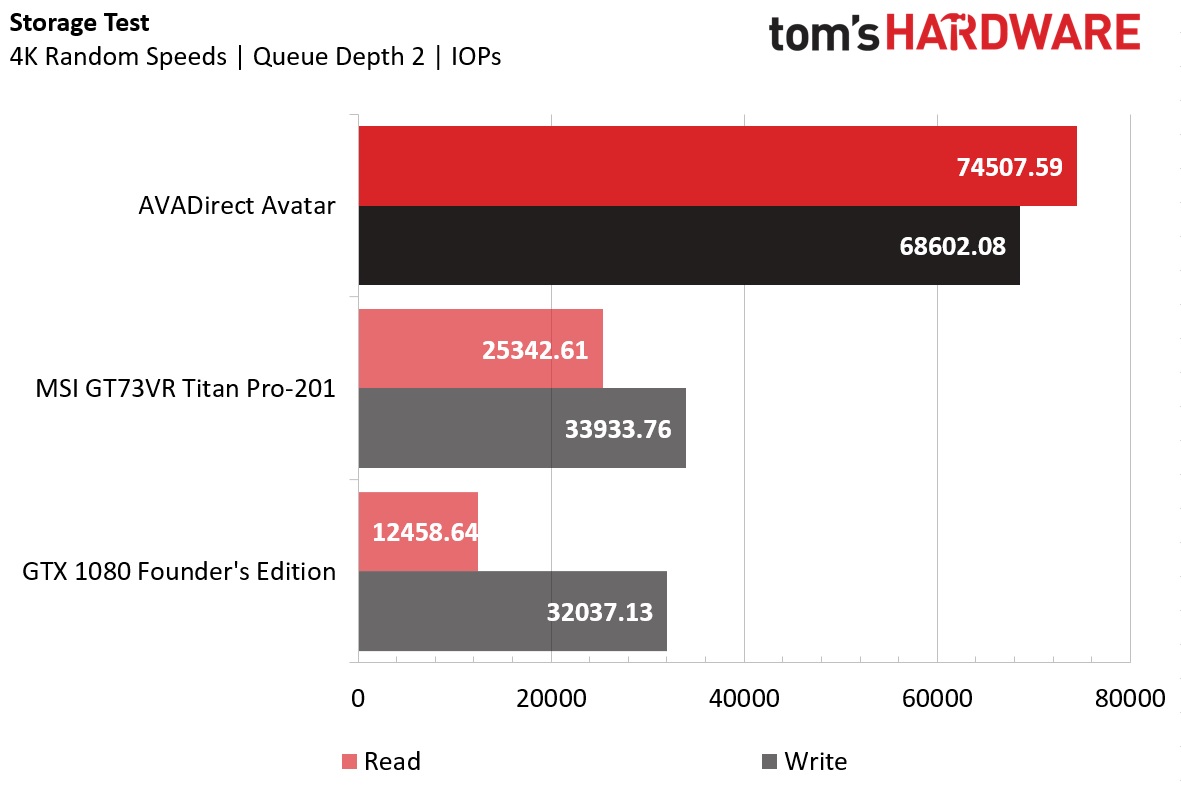
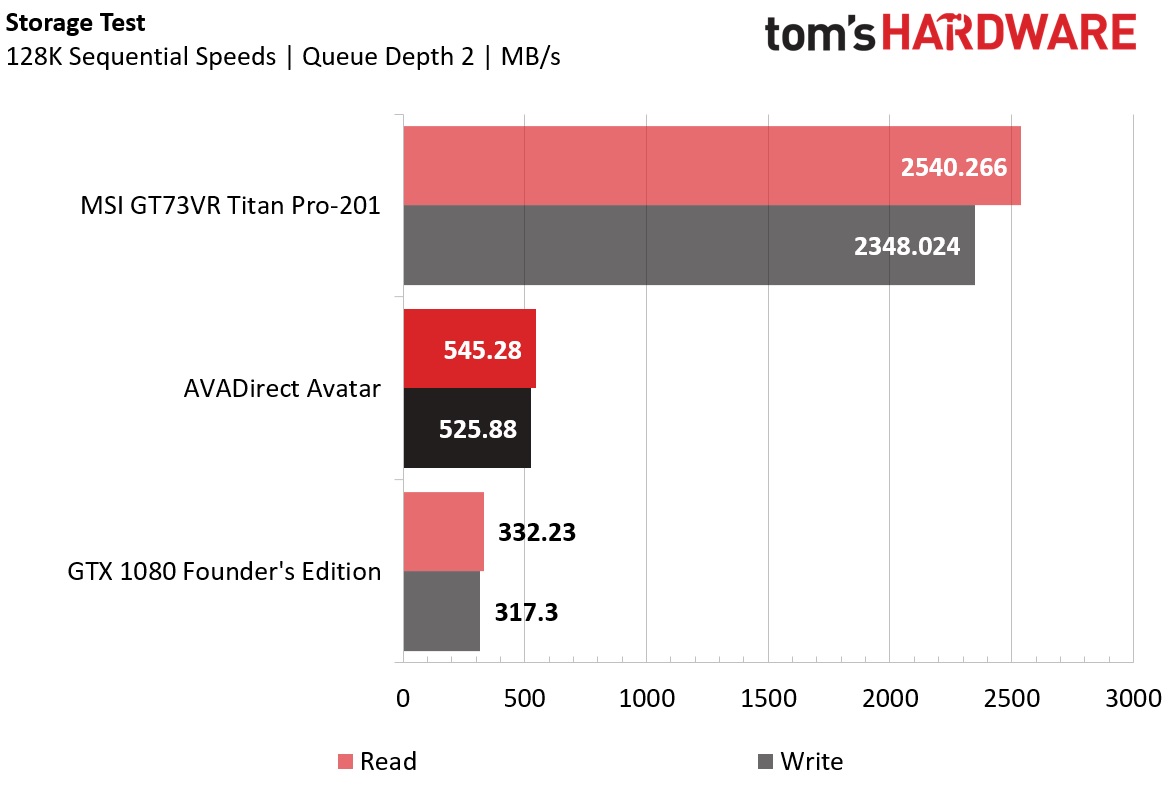
Note: We've changed our storage testing method after several gaming laptop reviews. Our previous method was yielding mixed results with TLC memory cells. We've retested the MSI Titan Pro's storage array with that in mind, and the new results are included above. We'll also be updating our storage benchmarks in those gaming laptop reviews, and using our new methodology from here on out.
Get Tom's Hardware's best news and in-depth reviews, straight to your inbox.
The Avatar finally takes a hit (like a truck) against the Titan Pro's M.2 NVMe RAID 0 storage setup, which handily beats the sequential read/write speeds of the other systems. However, the 500GB Samsung 850 EVO SATA SSD inside the Avatar makes short work of our test system's Micro P400M (which, in its defense, is not a commercially-available SSD, and we only used it because that's what we had at our disposal), and it would surely beat out any HDD-equipped system. It also manages to achieve higher random read/write IOPS than the Titan Pro at QD2. We excluded the GTX 1070 results from the chart because the GPU in our test platform doesn't affect storage performance.
PCMark 8
AVADirect's aggressive overclock pays dividends in the PCMark 8 benchmark, where it easily leads the field with Creative and Office scores each above 5500 points. The Titan Pro gets left in the dust by these desktops because it (and subsequently, all of the gaming laptops we tested) has the Intel HD Graphics driver installed, and the benchmark will automatically run on the integrated GPU if it is detected. The Avatar didn't come with the Intel driver installed (desktops don't need the battery-saving features of Nvidia Optimus), and this is a common occurrence with custom-built desktop PCs, so we ran our test system in a similar fashion.
Current page: Synthetic And Productivity Benchmarks
Prev Page Introduction And Product Tour Next Page Gaming BenchmarksDerek Forrest was a contributing freelance writer for Tom's Hardware. He covered hardware news and reviews, focusing on gaming desktops and laptops.
-
Luko92 You can build yourself the same configuration for less than 2000$ and you can choose a less expensive mobo, better fans, case, RAM, SSD, and GPU for the same price.Reply
Why should I buy an Avatar?
If you are not able to build it yourself it'll cost you around 50$, not 500$. -
razor512 It is a massive ripoff, While I could not get the same case, I picked parts for an equivalent system. and ended up with a significantly lower price. Building it yourself, will be $783.84 cheaper. that is enough money to buy an extra GTX 1080, and a 256GB Samsung 950 Pro SSD to go along with your 500GB 850 evo, and 1TB HDD.Reply
Building that same system:
Base Total: $1745.38
Mail-in Rebates: -$30.00
Shipping: $9.78
Total: $1725.16
https://pcpartpicker.com/list/wdQMM8
This same build on black Friday, would have been about $1600 -
c4s2k3 I also prefer to build gaming rigs vs. buying turn-key system, but this is clearly aimed at people who are willing to spend more and spend zero time pairing components, price hunting for components, building, testing, loading OS, tweaking BIOS configurations, or any such thing.Reply
Some people simply place higher value on their time than those of us who enjoy building a rig, and from that perspective, systems like these are far from a "rip off". -
razor512 The issue is that this goes beyond people paying extra to get prebuilt system, these markups are worst than apple's markups.Reply -
diblaze 1 there is a three year warranty . most places charge 300.00 or more for it .even though the parts come with there own warranties out of the box. for the added piece of mind and warranty, and w/o the hassle of building it. i think it's a good buy ...of course my hands don't work like they used to.Reply
